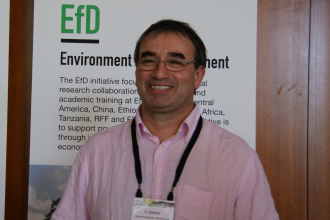In this paper we tested if social networks at the origin, measured by religious affiliation, can affect the out-migration decision. For this purpose, we estimated a conditional logit model and a mixed logit model for the decision to migrate to one of 13 destinations, or to stay at the original location. In general, the results were as expected, given theoretical considerations, and were robust to model specification and estimation procedures. Moreover, the results support the hypothesis that religious attachment affects migration decisions.
